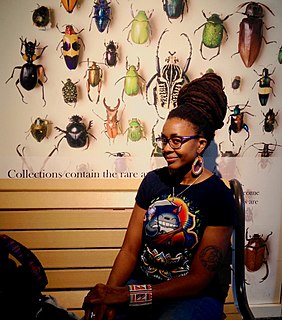A Quote by Petina Gappah
What we are trying to do now, this new generation of African writers, is to write about what it is to be a human being living in a particular African country. These are stories that resonate with anyone, anywhere.
Related Quotes
One of the things that made the Black Muslim movement grow was its emphasis upon things African. This was the secret to the growth of the Black Muslim movement. African blood, African origin, African culture, African ties. And you'd be surprised - we discovered that deep within the subconscious of the black man in this country, he is still more African than he is American.
When I was a kid, I'd go to the African-American section in the bookstore, and I'd try and find African-American people I hadn't read before. So in that sense the category was useful to me. But it's not useful to me as I write. I don't sit down to write an African-American zombie story or an African-American story about elevators. I'm writing a story about elevators which happens to talk about race in different ways. Or I'm writing a zombie novel which doesn't have that much to do with being black in America. That novel is really about survival.
Sport has the power to inspire and unite people. In Africa, soccer enjoys great popularity and has a particular place in the hearts of people. That is why it is so important that the FIFA World Cup will, for the first time ever, be hosted on the African continent in 2010. We feel privileged and humbled that South Africa has been given this singular honour of being the African host country.






































